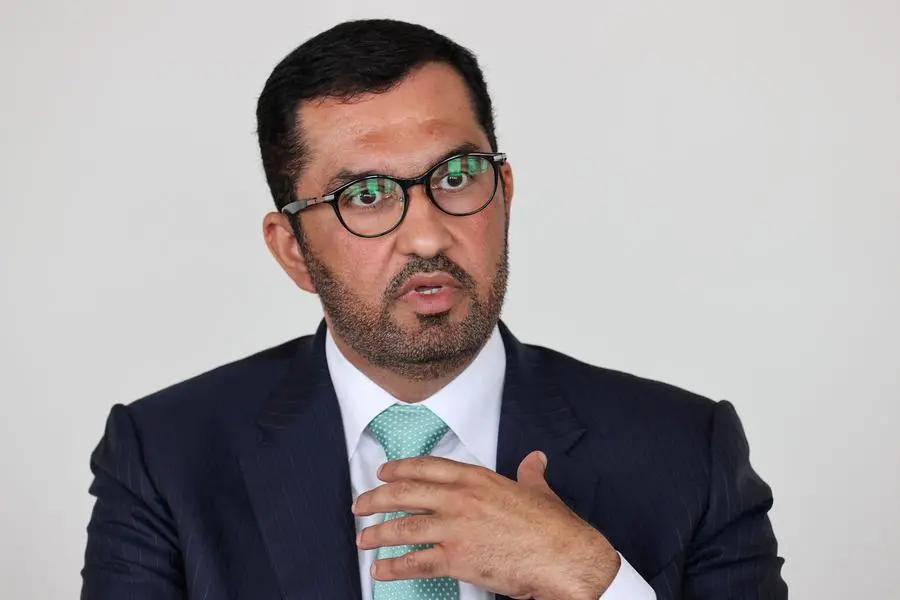PHOTO
Upcoming UN climate talks in Dubai will be open to the private sector on an unprecedented scale, the conference's chief said on Monday, calling it a chance to "reimagine entire economies".
Sultan Al Jaber, the COP28 president and head of state-owned oil giant ADNOC, was speaking at the start of preliminary discussions in Abu Dhabi where ministers will grapple with key climate issues.
"Inclusivity is a defining principle of COP28. That includes being open to the private sector on a scale we have never seen before," Jaber said in the UAE's capital.
Jaber has consistently tried to frame the climate crisis as an economic opportunity. He said about 70 ministers and 100 delegations are attending the two-day talks, more than double the usual number.
"Decision-makers in finance will be with us. Key figures in tech will be with us. Leaders across every significant industrial sector of the global economy will be with us," he said.
The future of fossil fuels is likely to be the biggest source of contention at the November 30-December 12 COP28 summit, along with providing help for poorer nations to cope with the effects of climate change.
"I know there are strong views about the idea of including language on fossil fuels and renewables in the negotiated text," Jaber said, without elaborating.
"We also need to transform international financial institutions, build carbon markets and incentivise private investment to turn billions into trillions," he added.
World leaders meeting in Dubai, the United Arab Emirate's commercial hub, for COP28 will also have to respond to a damning progress report on the world's commitments under the Paris Agreement.
The 2015 deal aims to limit global warming to well below two degrees Celsius since the pre-industrial era, and preferably a safer 1.5C.
"COP28 must deliver a robust global stocktake with a strong mitigation outcome, a comprehensive adaptation agreement, and groundbreaking solutions on finance," Jaber said.
He added that "more than 20" oil and gas companies had responded to an appeal from COP28 to end methane emissions by 2030.
"And we are engaging with all high-emitting sectors -- like heavy transportation, aluminium, steel and cement -- to lay out credible decarbonisation plans," Jaber said.
COP28 is taking place as resource-rich Gulf countries including Saudi Arabia, the world's biggest oil exporter, are trying to reduce their economies' reliance on fossil fuels.





















